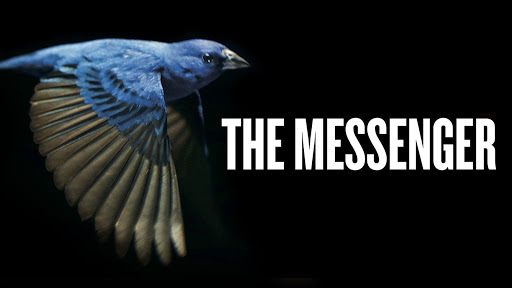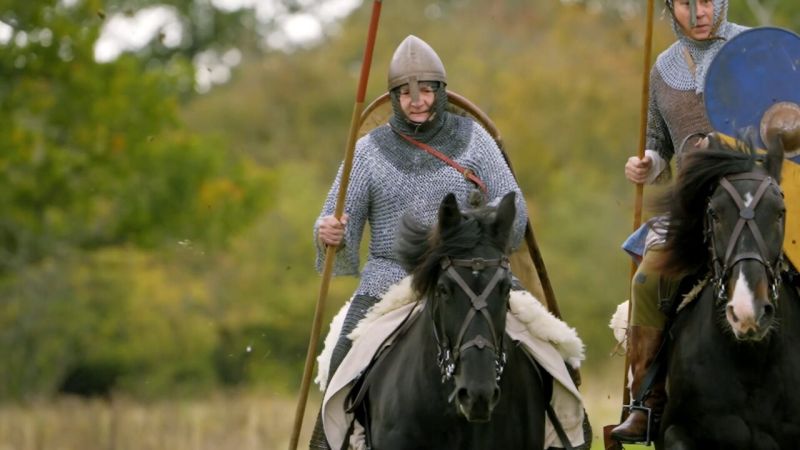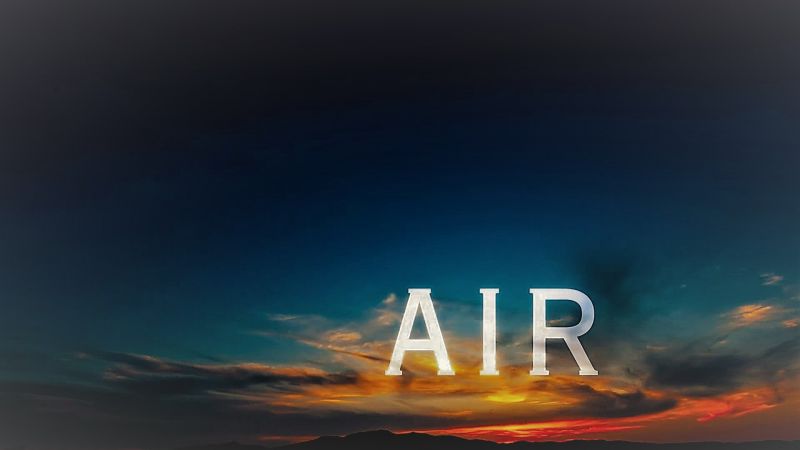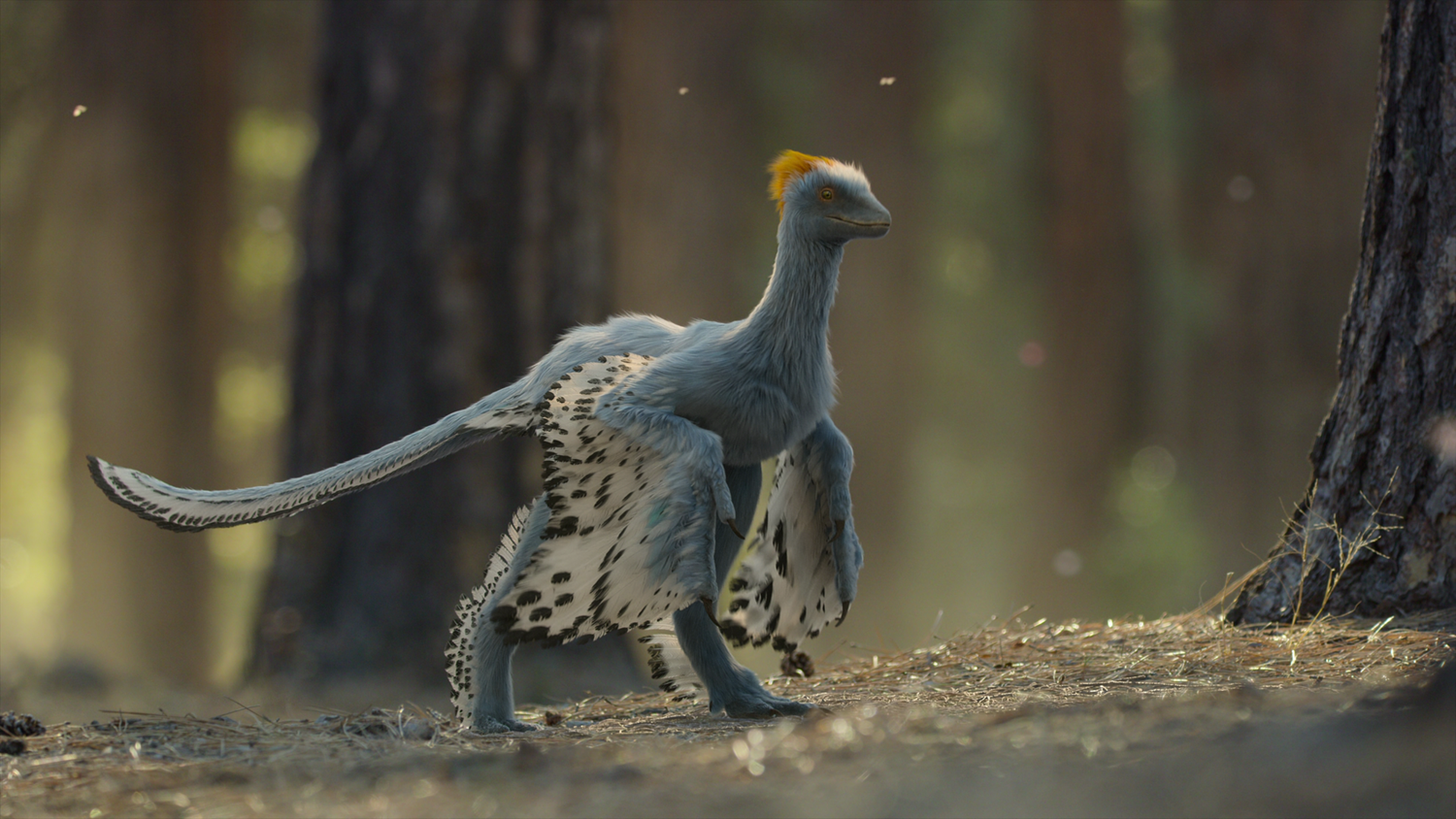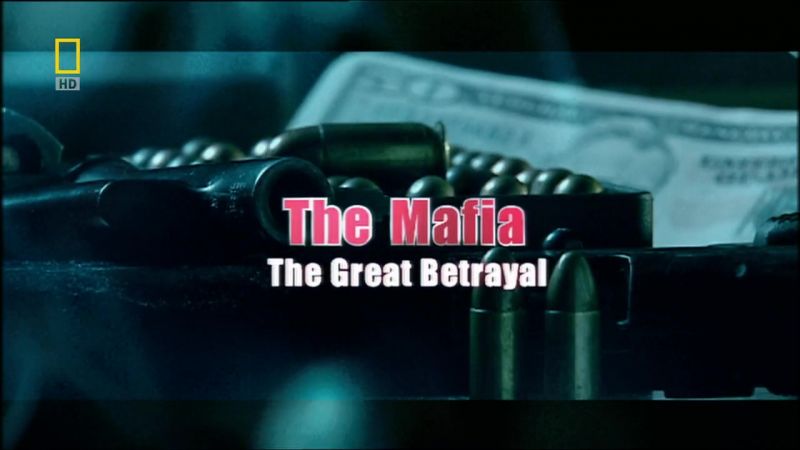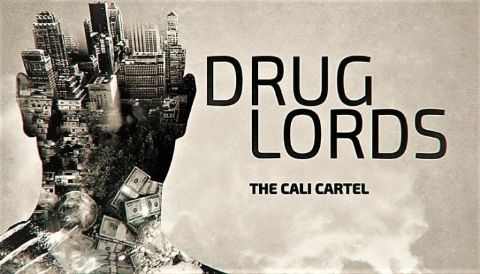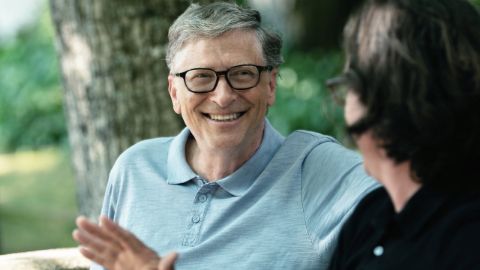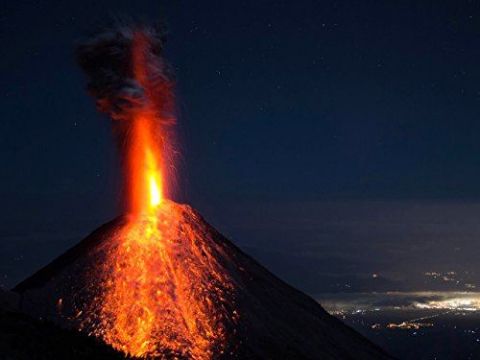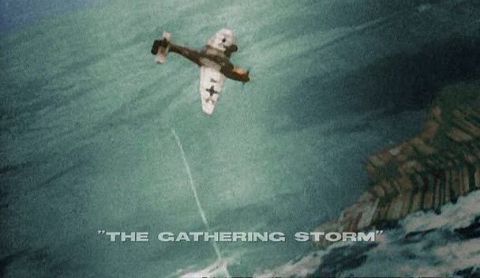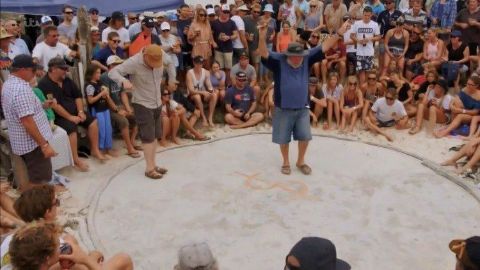The Messenger explores our deep-seated connection to birds and warns that the uncertain fate of songbirds might mirror our own. Moving from the northern reaches of the Boreal Forest to the base of Mount Ararat in Turkey to the streets of New York, The Messenger brings us face-to-face with a remarkable variety of human-made perils that have devastated thrushes, warblers, orioles, tanagers, grosbeaks and many other airborne music-makers. In ancient times humans looked to the flight and songs of birds to protect the future. Today once again, birds have something to tell us.
2015 • Nature
Tells the story of the Sinclair ZX Spectrum. This film goes into all the finer details of how and why the ZX Spectrum was created, what impact the computer had as well as the various versions that followed right the way through to the latest iteration of the system with the ZX Spectrum Next. Complete with interviews from industry legends.
2024 • Technology
Luminous tells the story of the first astronomer in history to publicly predict the near-future explosion of a star--will he be right? Others in the astronomical community are skeptical, and professional reputations hang in the balance. In production for five years, Luminous follows Larry Molnar's journey to test an unprecedented prediction, knowing that its success or failure will unfold squarely in the international spotlight.
2022 • Astronomy
When Apollo astronaut Gene Cernan stepped on the Moon in December 1972 he left his footprints and his daughter's initials in the lunar dust. Only now, over forty years later, is he ready to share his epic but deeply personal story of fulfillment, love and loss. Cernan's burning ambition carried him from a quiet Chicago suburb to the spectacular and hazardous environment of space, and ultimately, to the Moon. Five years in the making, The Last Man on the Moon unveils a wealth of rare archive material, and takes Cernan back to the launch pads of Cape Kennedy, to Arlington National Cemetery and to his Texas ranch, where he finds respite from a past that refuses to let him go.
2014 • Astronomy
The shocking story of Aum Shinrikyo, the doomsday cult that unleashed a deadly nerve gas in Tokyo's subway system in 1995. Founded by disillusioned yoga teacher Shoko Asahara, Aum transformed into a terrorist organization while Japan's police and media turned a blind eye. Featuring rare archival footage and an interview with one of Asahara's former high-ranking disciples.
2023 • People
The inside story of the tech entrepreneurs who created the social media app Twitter. At first the site grew on the back of celebrities who realised it offered them a direct way to communicate with fans. After going global, it seemed to be fulfilling the founders' dream of a digital utopia where all voices would be heard. But as hate speech and misinformation flooded the platform, the founders faced growing problems to control it - and the sale to Elon Musk in 2022 represented the end of their dream.
2025 • Technology
Explore Tulum, the final inhabited city of the Maya empire, where innovative archaeology and cutting-edge technology reveal the mysteries behind the collapse of one of Mesoamerica's greatest civilisations.
2023 • History
From battlefields and ancient swords to mighty castles and Durham cathedral, the rich, brutal story of William the Conqueror's journey from invader to ruler of England. Alice Roberts discovers who the Normans really were, tests a nearly thousand-year-old sword from William the Conqueror's time and wonders why there are so few women depicted in art from the time. Plus, Danielle George gets a brutal lesson in medieval 11th-century battlefield combat techniques, and Onyeka learns how William's coronation turned into a PR disaster.
S1E4 • Fortress Britain • 2022 • History
Tales of Cold War Britain, from nuclear threat to upper-class spies, eerie ghost bunkers and our very own Chernobyl. In Cold War military buildup Britain constructed bunkers for the civilian population and created its own nuclear missile defense. Professor Alice Roberts explores the UK's response to the threat of nuclear attack during the early years of the Cold War in the 1950s, when a network of upper-class spies began merrily sharing British military secrets with the Soviet Union. We also visit a nuclear-bomb-proof command center and inspect the legendary Avro Vulcan jet bomber.
S1E3 • Fortress Britain • 2022 • History
How Britain planned for a Nazi invasion - from tank traps and sticky bombs, to the Home Guard and tragic story of heroism. Alice Roberts looks for visible traces of Britain's rearmament in preparation for a German invasion. How did the Home Guard come about and what was the role of women in the offensive defense? We meet Indian-American Noor Inayat Khan, a special agent who worked with sabotage activities in German-occupied France, and hear her tragic story as one of the war's forgotten heroines. Alice learns about the deployment of the Home Guard, and Danielle travels to the Channel Islands, the only part of the British Isles under German control, to visit the only concentration camp built on British soil in Alderney. She explores life under occupation and visits the underground hospital Festung Guernsey.
S1E2 • Fortress Britain • 2022 • History
The story of Henry VIII's fear of Catholic Europe, told via his castles, cannons and spies. The first episode examines the surviving traces of Henry VIII's fear of invasion from Catholic Europe through physical reminders, including mighty castles and cannons, that survive to this day. At her headquarter in Walmer Castle, built in 1540 in Kent to defend the town against a French invasion, Alice gets her hands on a vast hoard of Tudor coins and a 500-year-old jousting scorecard, as she learns how Henry's greed and ambition led him to bankrupt the nation and lay the foundations for the modern secret service. Danielle visits Henry's mighty castle at Deal and witnesses the awesome power of the cannons built to defend England, while Onyeka gets within touching distance of the iconic Mary Rose.
S1E1 • Fortress Britain • 2022 • History
In 1966, drought and an exploding population confronted India with the imminent threat of a severe famine that many scientists and intellectuals feared was a harbinger of global catastrophes to come, as the world's population outstripped its ability to produce food. India turned to Norman Borlaug, an unassuming plant breeder from Iowa whose combination of scientific knowledge and raw determination had made him a legend among a small handful of fellow specialists. The Man Who Tried to Feed the World recounts the story of the man who would not only solve India's famine problem, but would go on to lead a "Green Revolution" of worldwide agriculture programs, saving countless lives. He was awarded the 1970 Nobel Peace Prize for his work but spent the rest of his life watching his methods and achievements come under increasing fire.
2020 • People
To survive, animals need somewhere to live, a place that provides the necessities of life, shelter from the elements and a refuge from enemies. Good homes are rare and competition can be intense – finding a home is one thing, but defending it is quite another.
S1E3 • Life Story • 2014 • Nature
From artificial photosynthesis to vegan diets, changes in science and behavior are helping improve Earth's air quality.
S1E2 • Age of Humans • 2021 • Environment
Fairy tales have survived thousands of years for a reason. Explore their far-flung history and how the stories speak to fundamental human concerns.
S3E14 • Explained • 2021 • Creativity
More than three decades after the debut of Carl Sagan's ground-breaking and iconic series, "Cosmos: A Personal Voyage," it's time once again to set sail for the stars. Host and astrophysicist Neil deGrasse Tyson sets off on the Ship of the Imagination to discover Earth's Cosmic Address and its coordinates in space and time. Viewers meet Renaissance Italy's Giordano Bruno, who had an epiphany about the infinite expanse of the universe. Then, Tyson walks across the Cosmic Calendar, on which all of time has been compressed into a year-at-a-glance calendar, from the Big Bang to the moment humans first make their appearance on the planet.
S1E1 • Cosmos: A Spacetime Odyssey • 2014 • Astronomy
The elements that constitute every living being were formed within the very first stars. Today, a green sea turtle searches the ocean for them.
S1E4 • Our Universe • 2022 • Nature
The dinosaurs met their end with a cataclysmic asteroid impact. Rising from the ashes, birds reinvented themselves into a dynasty 10,000 species strong.
S1E6 • Life on Our Planet • 2023 • Nature
Richard Dawkins urges all atheists to openly state their position — and to fight the incursion of the church into politics and science. A fiery, funny, powerful talk.
Terror filled the streets of Sicily as rival bosses fought for control of the drug empire. The arrest of godfather, Tommaso Buscetta marked a turning point when he broke omerta, the mafia's sacred code of silence.
Gilberto and Miguel Rodriguez Orejuela use violence and guile to turn the Cali Cartel into a $7 billion-per-year criminal operation.
S1E2 • Drug Lords • 2017 • People
Bin Laden's on the run and plotting an audacious plan to strike at the US. Bin Laden returns to Saudi Arabia from Afghanistan, where he is hailed as a war hero after the Soviets left because he believes he made a significant contribution to the military victory. 18 months later, Saddam Hussein invades Kuwait, prompting worried Saudi authorities to turn to the US for protection. Horrified by what he perceives as an invasion of the holy places by the American army, bin Laden publicly opposes the Saudi royal family declaring Jihad against the US and is eventually forced to flee to Sudan. There he reinvents himself as a major agricultural producer of sunflowers and watermelons, while expanding al-Qaeda's work and setting up training camps that attract recruits from across the region. Under pressure from Saudi Arabia and the United States, bin Laden finally has to give up his refuge in Sudan. Stateless and without much prospect of alternative quarters, he returns to Afghanistan in 1996. Just a few months later, he issued a 30-page fatwa declaring holy war against the Americans who occupied the Arabian Peninsula. He surrounded himself with increasingly radical extremists, and in the summer of 1996 finally suggested piloting planes to American targets. The plan to attack the Twin Towers is born. This compelling history documentary looks at the factors that transformed Bin Laden from a renowned freedom fighter to a devoted enemy of America and the West. What drove him to plot his most audacious attack?
S1E2 • Bin Laden: The Road to 9.11 • 2021 • People
Bill Gates speaks about his life-or-death mission to get better sanitation to the developing world. Also, his sisters share their childhood memories.
S1E1 • Inside Bill's Brain: Decoding Bill Gates • 2019 • People
The second episode delves into the moral framework that religions are often cited as providing and argues against the indoctrination of children. Dawkins compares religious faith to a virus, being passed from parents to offspring and teachers to pupils. He visits a London Hasidic Jewish school, where students are largely isolated from outside ideas, and Phoenix Academy, a semi-independent city academy following the American Accelerated Christian Learning curriculum. Dawkins interviews the headteacher about the integration of biblical stories into various academic subjects and explores the differences between secular ethics and morality based on religious law. He also discusses concepts from evolutionary biology, such as reciprocal altruism and kin selection, as explanations for morality.
S1E2 • The Root of All Evil • 2006 • People
Indonesia is one of the most volcanically active countries in the world--the island of Java alone has 45 active volcanoes, which could erupt at any time. Descend into some of the world's most volatile craters with scientist Tom Pfeiffer, who is hell-bent on photographing rare volcanic phenomenon.
S2E3 • Volcanic Odysseys • 2016 • Economics
From the moment we first drilled for oil, we opened a Pandora's box that changed the world forever. It transformed the way we lived our lives, spawned foreign wars and turned a simple natural resource into the most powerful political weapon the world has ever known. But when exactly did geology turn into such a high-stakes game?
S1E1 • Planet Oil • Economics
In the 21st century, China has become a global economic powerhouse. Why was the rest of the world so slow to notice its rise to the top?
S1E3 • History 101 • 2020 • Economics
As we entered the 21st century, the world was guzzling oil, coal and gas like never before. Despite fears of 'peak oil', Professor Iain Stewart discovers that while huge technological advances are helping extend the life of existing oilfields, new unconventional oil and gas supplies like shale gas and tar sands are extending the hydrocarbon age well into the 21st century.
S1E3 • Planet Oil • Economics
Does the stock market accurately reflect the status of the economy? Finance specialists discuss market history, valuations and CEO incentives.
Jan Leeming narrates a look at controversies, scandals and surprises in TV, film, music and politics from 1990, when Mark Fowler rocked Walford with a dramatic return to EastEnders and a sitcom about Adolf Hitler was pulled off air after just one episode. The Poll Tax riots caused chaos on the streets of London and it was the end of the road for Britain's longest serving prime minister when Margaret Thatcher resigned. Heavy metal band Judas Priest were accused of hiding subliminal messages in their songs, and pop duo Milli Vanilli's career came to a dramatic end when it was revealed they were nothing more than a mime act.
S1E5 • Controversially: That Was the Year that Was • 2023 • Economics
Sami reindeer herders and modern conservationists are teaming up in a bid to save one of Europe’s wildest frontiers. Through ice and snow, the link between man and wild is being reforged.
S1E3 • Europe's New Wild • 2021 • Nature
In his epic journey across Japan from north to south, James leaves bustling Tokyo to travel to the ancient capital of Kyoto. Along the way he indulges his passions for motorbikes, Japanese cars and culture by painting Mount Fuji, tackling the Suzuka F1 circuit and taking a music lesson from a Geisha. It’s then time for a taste of the future as a confused robot shows James around Kyoto.
S1E4 • James May: Our Man in Japan • 2019 • Travel
The series starts with that great paradox. How could the settlement at the end of World War One - the 'war to end all wars' - lead to an even greater conflict just a few years later ? The answer is a tale with terrible resonancy today. This film shows how the Great Depression sapped the will of the democracies of the West to face up to a new and disturbing political phenomenon - the rise of militaristic dictators, in Germany, Italy, Japan and Spain. The result was that the major powers ignored all the warning signs and allowed the likes of Mussolini and above all Hitler to begin the course that would lead the world into catastrophe. The programme ends as Hitler plots his attack upon Poland.
1/13 • World War II In HD Colour • 2009 • History
In the heart of the Atlantic, Gordon Buchanan joins a team looking to discover why huge numbers of devil rays, fish with 'wings' nearly four metres across, and gather every summer near the Azores archipelago. In northeast Turkey the on-board cameras are carried by brown bears as part of a study trying to understand why so many bears survive in a small patch of forest. In southern France on-board cameras help scientists trying to prove that guard dogs can help protect sheep flocks from wolf attacks. The night-vision cameras show how the dogs work together as a team to fend off the wolves.
S1E3 • Animals with Cameras • 2018 • Nature
You can't help it; sometimes, you just get a bad feeling about someone that's hard to shake. So, what's happening in your brain when you make that critical (and often lasting) first judgment? Peter Mende-Siedlecki shares the social psychology of first impressions -- and why they may indicate that, deep down, people are basically good.
His first stop is Lord Howe Island, where the pace of life is slow and the population is a steady 350. He also visits Norfolk Island, Australia's most easterly territory and the remotest island on Martin's journey.
S1E1 • Islands of Australia • 2017 • Travel
